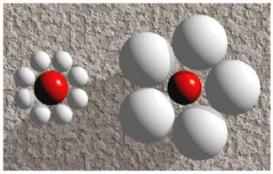It is a continuous task for the empirical sciences to distinguish reliable from unreliable observation. A concept that plays an important role here is that of an illusion of perception. For philosophers, such illusions have often been a reason to mistrust the senses. They were also treated in optics, astronomy, and other disciplines. A division of scientific labor seems natural here: empirical sciences in general consider these illusions for methodological and theoretical reasons. In contrast, for philosophical epistemology and—in different ways—cognitive psychology, illusions have also been part of their very subject matter. They investigate them in order to understand, and control, the basis of empirical knowledge.
This project had two parts. First, it studied the interactions between the actual instruments and experiments, and the methodological and theoretical assumptions of research on perceptual illusions. Here the purpose was to explain the order in which such research has developed. Stated differently, the theory and methodology of psychology are empty without a history of instruments, but the history of instruments is also blind without the methodological and theoretical assumptions that have guided their use (to vary a dictum by Kant; see Sturm and Ash, 2005). Second, the project dealt with a complex philosophical and historical problem: How has the conceptual distinction between perception and judgment been used in understandings and theories of the perceptual illusions? How do these shifts affect the relation between philosophy and psychology, and the goal of these disciplines to safeguard empirical knowledge-claims?

